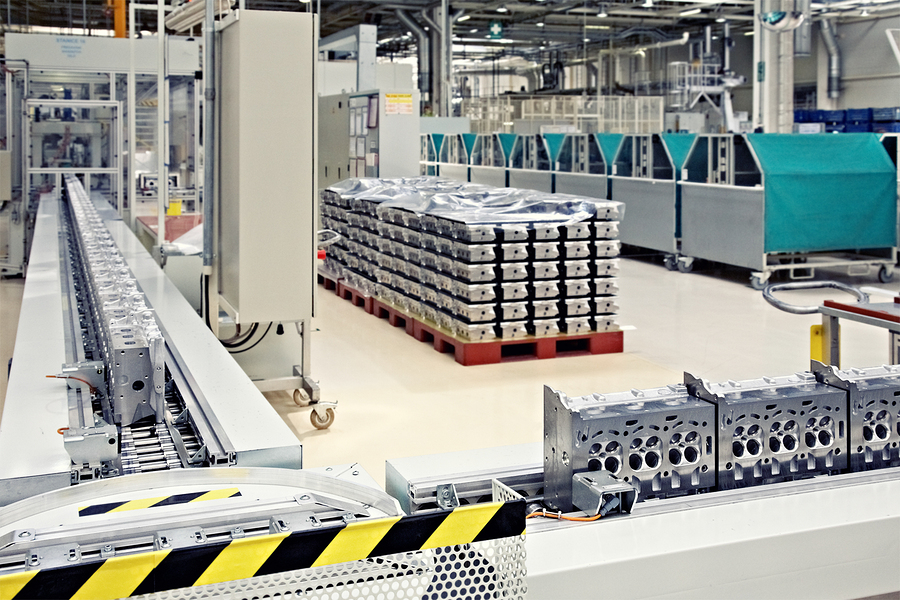Through our involvement as channel partners for both Lean Manufacturing solutions and Sustainability Management solutions, we at The Triana Group have experienced an enthusing virtuous cycle between these two functional areas.
Lean initiatives, not only in manufacturing, continue to become more prevalent every day . Over 69% of companies say they have implemented some sort of lean manufacturing solution in their business according to a Compensation Data Manufacturing survey. Lean manufacturing was initially created to reduce costs, including any excess waste created during business processes. Eliminating waste, it turned out, not only improves business process quality, but also provides increased production efficiency, saving time and resources during production and money for the company. Since then, multiple types of lean methods have developed, from Kaizen to 5S, that companies use as guides to build their lean strategy.
More recently and on parallel tracks, environmental sustainable practices have gained traction with the increased focus on Corporate Social Responsibility (CSR) and increased awareness of its business performance-improvement potential. Many standards have emerged regarding energy use and carbon emissions, sustainable resource usage, and more. To keep in line with these standards, many companies use sustainability management software.
So what links lean enterprise and sustainability?
Lean enterprise and sustainability practices, in fact, go hand in hand. Bergmiller and McCright* point out that both lean production systems and green operations systems encompass similar steps: management systems, waste reduction and efficiency-improving techniques, and ultimately achieving some type of business results. Their hypothesis, therefore, seems obvious: “Lean manufacturers are significantly greener than the general population of manufacturers”. (Bergmiller)
When exploring lean manufacturing options, working with companies like our joint-venture SESA SYSTEMS, Inc. is a great place to begin. The company has grown over the past 25 years as the world leader in lean enterprise solutions, making its products an integral part of thousands of corporations’ shift to more efficient, lean operations globally.
What can’t be measured can’t be managed
As sustainability initiatives contribute to lean enterprise initiatives, like other dimensions of lean, they require measurement: what can’t be measured can’t be managed. This is leading a growing number of corporations to implement sustainability reporting practices across their entire value chain -and increasingly their supply chain. Annual sustainability reports reflect this effort and serve multiple purposes both externally and internally. Ironically, many corporations still operate their sustainability reporting systems in a highly inefficient manner. We work with companies like Tennaxia to help corporations address this issue, by implementing sustainability management software that collects and manages data efficiently across the entire enterprise and its supply chain.
Investments in lean enterprise and sustainability management solutions are synergistic
This begs the question of which should be implemented first, or if they should be implemented together. Ultimately, implementing one of these initiatives should lead to initiatives within the other. Corporations that identify this synergistic relationship would benefit from investment in both lean enterprise and sustainability management solutions. There’s a lot to be gained in terms of efficiency and business performance from implementing lean manufacturing operations, and the same can be said for sustainability management systems. This shift to lean and sustainable practices won’t be going away any time soon. The benefits to companies are boundless and will only grow over time.
By Gina Aylward & Jabril Bensedrine
===
Sources:
- Compensation Data 2010 Manufacturing contains data on over 100 industry-specific job titles and more than 300 benchmark titles ranging from entry-level to top executives. Data was collected from nearly 1,100 manufacturing employers across the country. The results provide a comprehensive summary of pay data, benefit information and pay practices with an effective date of February 1, 2010.
- Bergmiller, Gary G., PhD, and Paul R. McCright, PhD. “Lean Manufacturers’ Transcendence to GreenManufacturing.” Http://zworc.com/site/publications_assets/leanmanufacturerstranscendence.pdf. Proc. of Industrial Engineering Research Conference. N.p., 2009. Web. 10 Mar. 2017.

